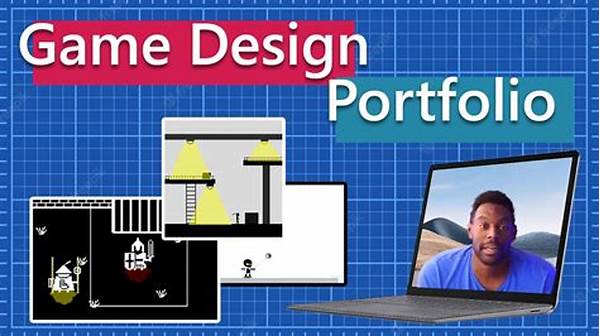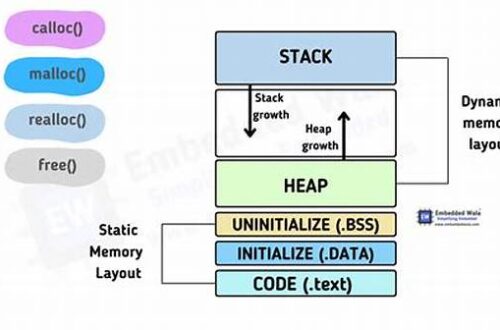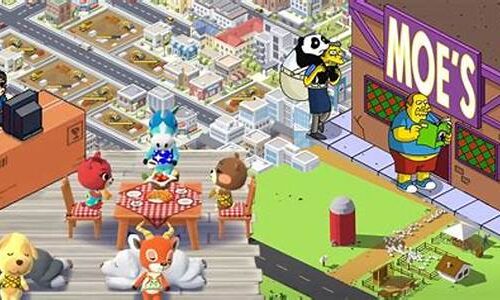Hey there! If you’ve ever found yourself daydreaming about creating your very own video game but feel overwhelmed by where to start, you’re in good company. Today, I’m diving into the world of beginner game design platforms, a magical land where your creative ideas can transform into interactive digital experiences. With the right tools, even the freshest newbies can build games that capture their imaginations and entertain players worldwide. So, grab a comfy seat, and let’s embark on this journey together!
Read Now : Real-time Fluid Simulation In Graphics
Why Choose Beginner Game Design Platforms?
When diving into game development, beginner game design platforms are your golden ticket to getting started without feeling like you’re drowning in complex code. These platforms are specifically tailored for newbies like you and me, making game development accessible, logical, and—dare I say—fun! Most of these tools come with user-friendly interfaces, drag-and-drop features, and extensive libraries of assets that you can incorporate into your projects. Imagine creating a game without needing to know advanced programming. Sounds like a dream come true, right? That’s the beauty of beginner game design platforms—they let you focus on the fun parts of creating a game, like brainstorming ideas and designing levels, while handling the heavy lifting under the hood.
Now, don’t get me wrong. These beginner game design platforms aren’t just for hobbyists looking for a creative outlet. They’re also fantastic for those considering a career in game development. By starting with such approachable tools, you get a feel for the basics and then easily transition to more complex software as your skills develop. The ability to publish your games is also often baked into these platforms, letting your creations reach players around the globe. So whether you’re in it for fun or forging a career, beginner game design platforms provide the perfect springboard to leap into the gaming world.
Popular Platforms to Explore
1. Unity Playground: Tailored for absolute beginners, Unity Playground offers a smoother entry into the world of game development. It’s a great way to dip your toes into creating 2D games.
2. Scratch: Perfect for kids and adults alike, Scratch helps you create interactive stories, games, and animations. It’s visual and super fun to use!
3. Godot Engine: A free and open-source option, Godot is celebrated for its flexibility and ease of use. It’s excellent for those who want to step into coding slowly.
4. Stencyl: Focused on 2D game creation, Stencyl’s drag-and-drop editor makes it incredibly intuitive for beginners.
5. GameSalad: Known for its simplicity, GameSalad helps users build and publish games across multiple platforms without the need for complex scripts.
Learning with Beginner Game Design Platforms
Getting started with beginner game design platforms is as simple as downloading the software and diving into some tutorials. YouTube, online courses, and community forums are bustling with resources. These platforms often come with rich documentation and active communities ready to help when you get stuck. It’s like having your personal cheerleading squad boosting you throughout your game-creating journey.
You can start with small projects, like a basic platformer or a simple puzzle game. As your confidence grows, experiment with more ambitious ideas. The key is to keep pushing your boundaries a little with each project. The hands-on experience with beginner game design platforms will not only enhance your skills but also ignite your passion for crafting unique gaming experiences.
Benefits of Beginner Game Design Platforms
1. User-Friendly: The intuitive design of these platforms makes learning game development less daunting.
2. Cost-Effective: Many beginner game design platforms offer free versions, making them accessible to everyone.
3. Community Support: A vast network of developers is available for support and inspiration.
4. Resource-Rich: Access to tutorials, templates, and guides enriches the learning experience.
Read Now : Cross-platform 3d Game Engines
5. Skill-Building: These platforms form a strong foundation for more advanced game development skills.
6. Cross-Platform Publishing: You can share your game on different devices and platforms.
7. Creative Freedom: Beginner platforms allow creative expression without technical hindrance.
8. No Coding Required: Dive into game design without needing to master programming languages first.
9. Interactive Learning: Engage with interactive tutorials and projects.
10. Portfolio Building: Start building a portfolio of your work right from day one.
Picking the Right Platform for You
Choosing the right platform depends on what you want to achieve. If you’re looking to create simple animated stories, Scratch might be your best bet. But if you’re drawn toward coding and more sophisticated game mechanics, Godot could be your go-to. Once you’ve picked a platform, immerse yourself in online resources. Beginner game design platforms often come with community forums, tutorial videos, and active Discord channels where you can seek advice or share your progress. It’s all about finding a platform that resonates with your learning style and end goals, ensuring that the journey remains enjoyable rather than frustrating.
The options are plentiful, and each platform has its unique features that cater to different needs. Try out a few to see which interface and functionality feel the most comfortable for you. Remember, there’s no rush—enjoy the exploration and the growth that comes with it! The joy of game design lies not only in the final product but in the creative process itself—every trial, error, and eureka moment along the way.
Building Your Game Design Skills
As you become more familiar with the ins and outs of beginner game design platforms, you’re likely to fall in love with game development even more. What began as a hobby might turn into a full-blown creative passion—or even a career path. Sharing your work with online communities or showcasing it to friends and family can provide valuable feedback, helping you refine your skills and ideas.
Dedication and practice are the keys to success. Start small, but dream big. The great thing about game design is that there is always something new to learn, and each project hones different skills—be it graphic design, storytelling, or sound engineering. Over time, you’ll be surprised at how much you’ve progressed, transforming from a novice to a confident creator within the vibrant world of game design.





